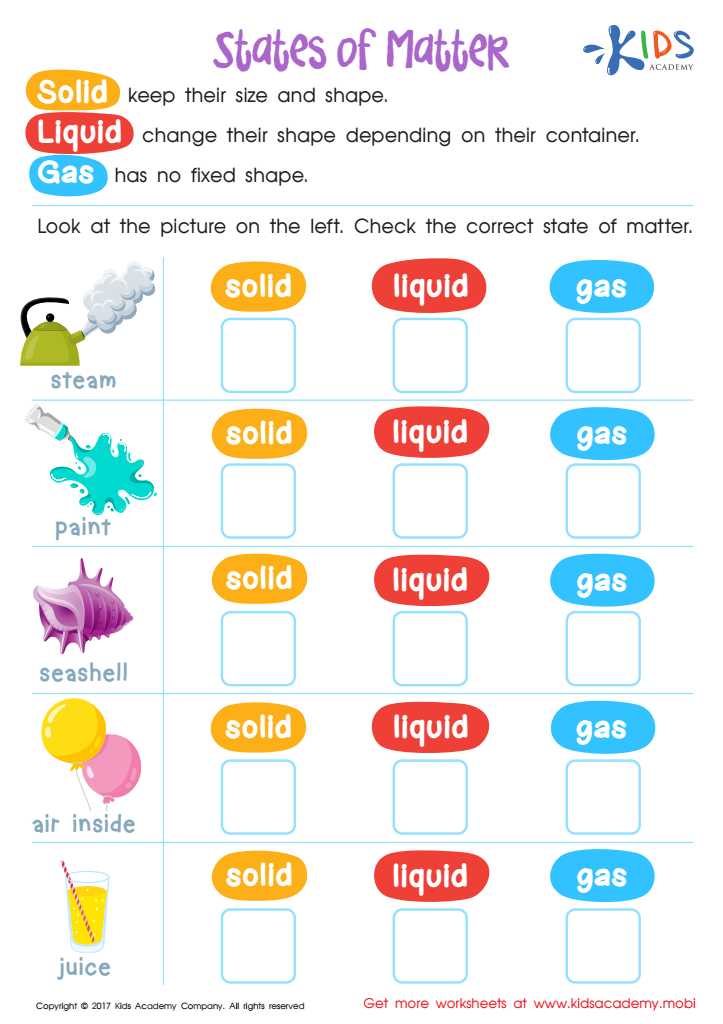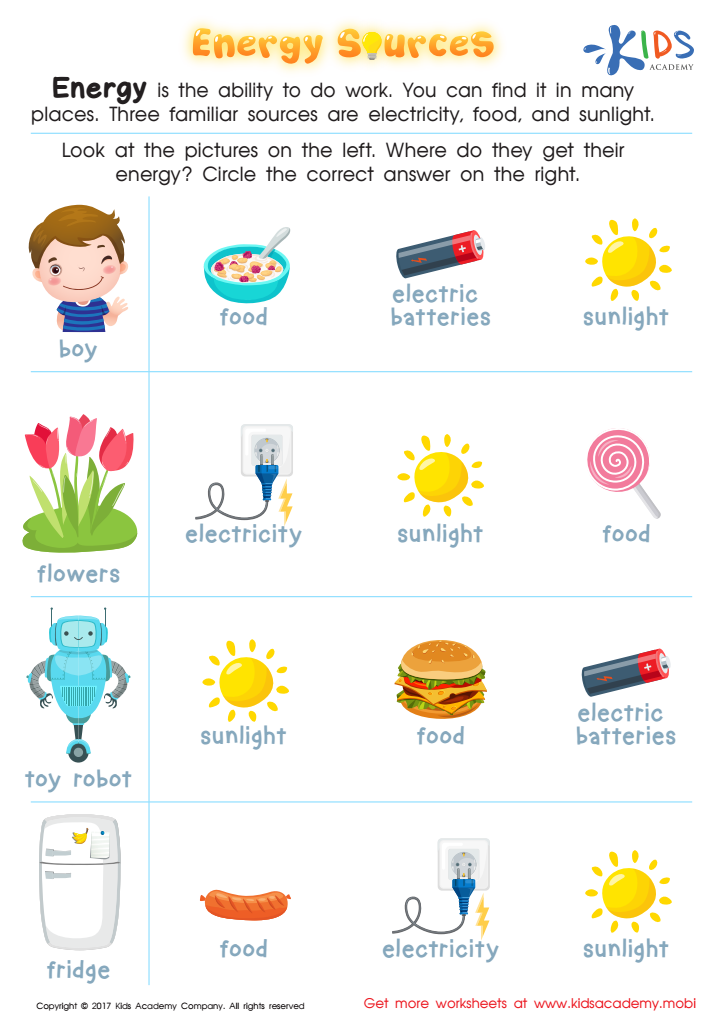Physical Science Worksheets for Ages 3-8
3 filtered results
-
From - To
Unlock the wonders of physical science for young minds with our engaging worksheets designed for ages 3-8! Kids Academy offers a curated selection of activities that make learning about the world around us fun and interactive. From basic physics to simple experiments, our worksheets encourage curiosity and provide hands-on experiences, ensuring foundational science concepts are understood in an exciting way. Perfect for early learners, these printables help develop critical thinking and problem-solving skills. Start your child's science adventure today with our age-appropriate, expert-crafted resources that cater to preschool through early elementary students.


Physical Science: States of Matter Worksheet


Sink or Float Printable


Energy Sources Printable
Parents and teachers should care about physical science for ages 3-8 because it lays a crucial foundation for cognitive development, scientific literacy, and lifelong curiosity. During these formative years, children exhibit natural curiosity and a desire to explore their environment. Physical science concepts, such as understanding matter, energy, and motion, foster critical thinking and problem-solving skills. These early experiences help build a solid framework for understanding the world, preparing children for more complex scientific learning in later grades.
Moreover, hands-on physical science activities promote fine and gross motor skills, engaging children in experiments and observations that are both educational and fun. Encouraging a playful exploration of science topics can enhance language development and boost early literacy and numeracy skills, as children learn to observe, describe, and quantify their findings.
Embracing physical science at a young age also helps diminish gender stereotypes by fostering an inclusive environment where both boys and girls can envision themselves as capable scientists. In a world that increasingly relies on science and technology, a strong early foundation in physical science cultivates a sense of wonder and inquisitiveness, vital for personal growth and future academic success. Importantly, it also fosters an informed perspective about the natural world and their place in it.

 Assign to the classroom
Assign to the classroom












